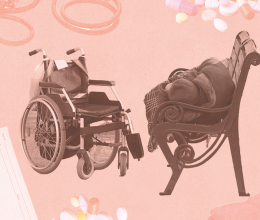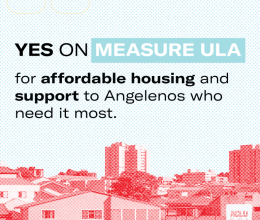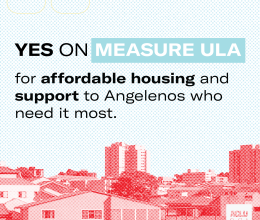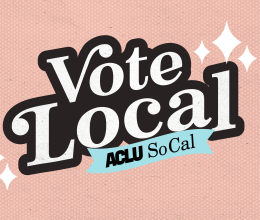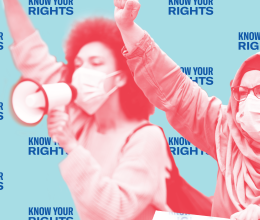
Despite the U.S. Supreme Court's decision in Grants Pass v. Johnson in which the court found that it was not a violation of the Eighth Amendment for local governments to punish and issue fines or arrest unhoused people for sleeping outside in public, and Governor Newsom’s subsequent executive order directing state agencies to urgently address unhoused people’s encampments, the ACLU SoCal remains prepared to defend the rights of unhoused people.
Unhoused people deserve a safe, permanent, and affordable home that meets their needs. In the City of San Bernardino, we held city leaders accountable for policies that violate people’s right to a home.
In September 2024, the ACLU SoCal, O’Melveny & Myers LLP, Elder Law and Disability Rights Center, and unhoused plaintiffs reached an agreement in our lawsuit, Tyson v. San Bernardino—a trailblazing agreement that enshrines in law rights for unhoused community members with disabilities.
The lawsuit highlights how the San Bernardino officials systematically violated their duties under the Americans with Disabilities Act (ADA), when the city demanded that disabled, unhoused individuals comply with impossible orders to hastily relocate themselves and all their belongings. Individuals who did not relocate with all their belongings faced confrontation with city security forces, including private security guards, as well as the confiscation and destruction of their property. When unhoused people with disabilities requested assistance, the city ignored their requests, violating the ADA.
This was wrong and inhumane.
The agreement will establish a new citywide policy on encampment cleanups that will prevent the destruction of unhoused people’s personal property and ensure that San Bernardino provides reasonable accommodations to unhoused people with disabilities. The city cannot displace people during cleanups unless they offer non-congregate interim housing options like hotels and unless there is a documented rationale, such as a specific public health or safety issue, for the move.
“This agreement ensures other people will have their rights protected going forward,” said Lenka John, a plaintiff in the case. “San Bernardino should meet [our needs] by offering housing and services that are voluntary, humane, and dignified.”
The agreement will also designate an ADA coordinator to ensure compliance with disability protections during cleanups and require San Bernardino to reinvest $600,000 into new city programs to support unhoused community members.
This agreement is an example of how we can work together to hold the government accountable and a reminder that the ADA protects individuals with disabilities regardless of their housing status. People do not lose their civil rights just because they are unhoused. People deserve to be treated with dignity wherever they live.

